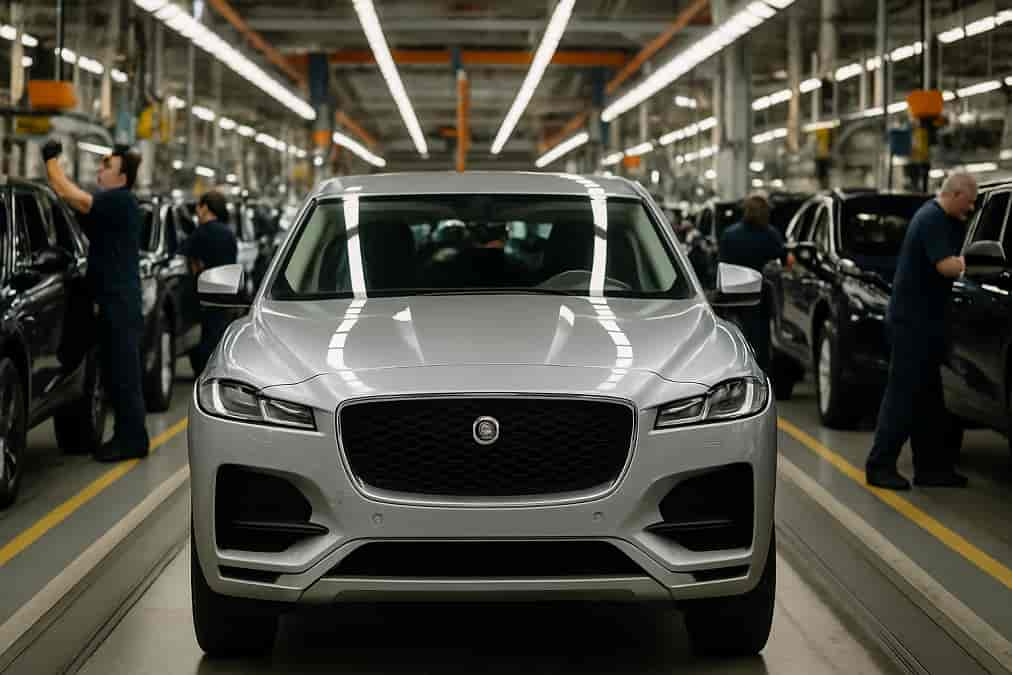In a year defined by disruption, uncertainty and pressures felt across the UK’s automotive heartlands, JLR’s incoming chief executive, P.B. Balaji, steps into one of the most challenging leadership transitions the sector has faced in recent memory. For thousands of UK workers whose livelihoods rely on the stability and long-term fortunes of the company, the stakes could not be higher. It’s vital we take a clear-eyed view of what this means for the workforce, the supply chain, and the wider industrial landscape.
The company’s troubles are stark. A global environment unsettled by trade tensions has already slowed momentum. That was followed by a crippling cyberattack that shut down operations for weeks, inflicting a devastating economic blow across the Midlands and beyond. At the same time, delays to the high-risk relaunch of Jaguar have caused further strain on a business already in transition. For UK workers, the consequences of such instability ripple far beyond the factory gates.
Balaji officially arrives on 17 November — and he inherits not only a bruised organisation but also the immense expectation that accompanies one of the country’s most significant manufacturers. The firm supports more than 200,000 jobs across Britain, from engineering and manufacturing roles to smaller suppliers who rely on steady production to remain viable. With so many livelihoods intertwined, the pressure for Balaji to steady the ship is immense.
Outgoing CEO Adrian Mardell leaves behind a mixed legacy. Observers argue that the organisation has been slow to deliver new products, and its electric line-up remains thin compared to rivals. Delays to the Range Rover Electric — now due next year, two years behind its original timeline — have fuelled concerns that JLR risks missing crucial market windows. While engineers insist the extended development will deliver a better product, the commercial reality remains difficult: battery costs are high, incentives have narrowed, and margins across the electric car market are under pressure.
By 2027, JLR expects a significant shift, with more electric models coming online. A second electric Range Rover is due in 2026 from the Halewood plant, with the electric Defender following soon after. Yet the absence of fresh petrol and hybrid options leaves the firm heavily reliant on electric demand at a time when consumer confidence in EV uptake has cooled. For UK workers, this transitional gap raises fears about production rhythms and longer-term job certainty.
Balaji arrives with a reputation forged in finance — meticulous, analytical and unafraid of tough decisions. Having served as CFO at Tata Motors and a JLR non-executive director for years, he understands the organisation’s internal machinery well. But operational control brings a different level of scrutiny, particularly around Jaguar’s reinvention as an all-electric luxury brand. The strategy is bold, but so far plagued by delays, with the first new Jaguar not set for full production until 2027. For the remaining Jaguar retailers in the UK, patience is wearing thin as they face a 12-month period with no new vehicles to sell.
Meanwhile, the cyberattack that halted production in August caused significant pain across the UK’s industrial ecosystem. Early modelling suggests the shutdown may have cost the UK economy up to £1.9 billion, with more than 40,000 vehicles lost during the disruption. For the workers on the factory floors and in adjacent supply networks, the sudden collapse in output added to pressures already mounting from earlier slowdowns. Balaji must now oversee a complete overhaul of JLR’s digital infrastructure, an endeavour that itself will require time, resources and sustained organisational focus.
Balaji also inherits the challenge of accelerating development cycles. While competitors such as Chinese manufacturers and established European brands have ramped up speed and innovation, JLR’s line-up has stagnated. No all-new model has launched since 2022, leaving popular models such as the Velar and Discovery ageing rapidly in a fiercely competitive market. Rebuilding consumer excitement will be essential — but so too will restoring confidence among the workforce who depend on a reliable pipeline of future projects.
Yet for all the challenges, the importance of JLR to UK industry provides a strong imperative for renewal. Government has long valued the symbolic and economic weight the company carries. Jonathan Morgan, spokesperson for The Workers Union said “ We will continue to monitor closely that the interests of UK workers and our members are prioritised throughout this period of transformation, especially as decisions taken in boardrooms ripple through communities built on decades of manufacturing heritage.”
Ultimately, the question that now defines JLR’s future is whether Balaji is the leader capable of navigating these crises while restoring long-term growth. With so many jobs, suppliers and regional economies on the line, failure simply isn’t an option. The workforce — the backbone of the company’s storied legacy — needs stability, forward-thinking leadership and a strategy that delivers consistency as well as innovation.
As Balaji settles into his new role next week, UK workers will be watching closely. The next chapter for JLR must be written with them firmly at the centre.




